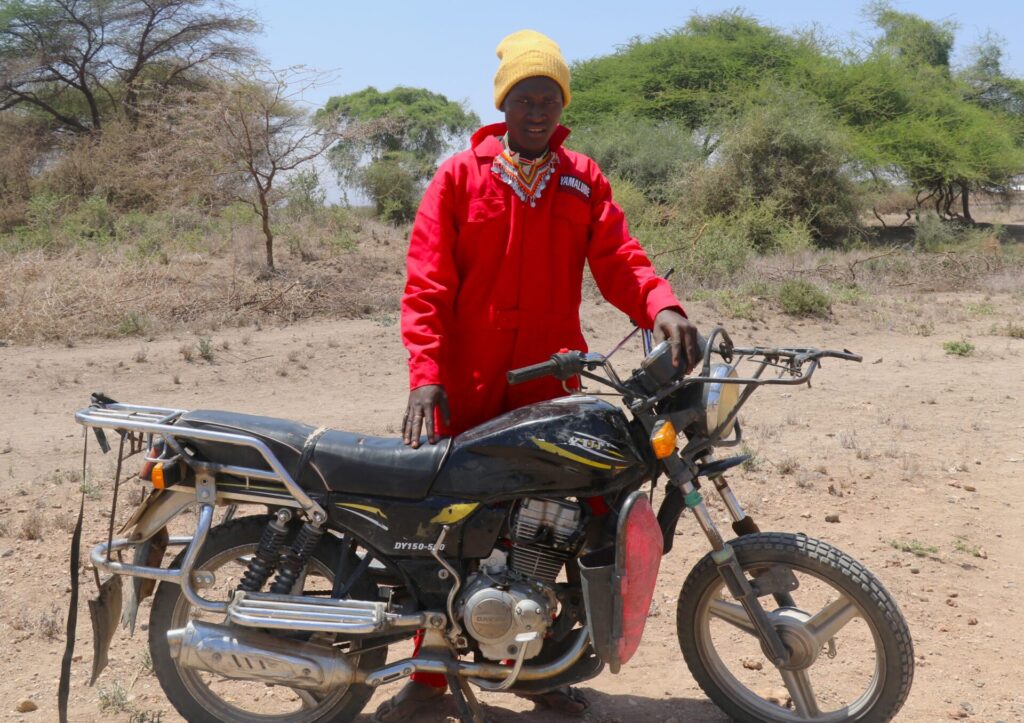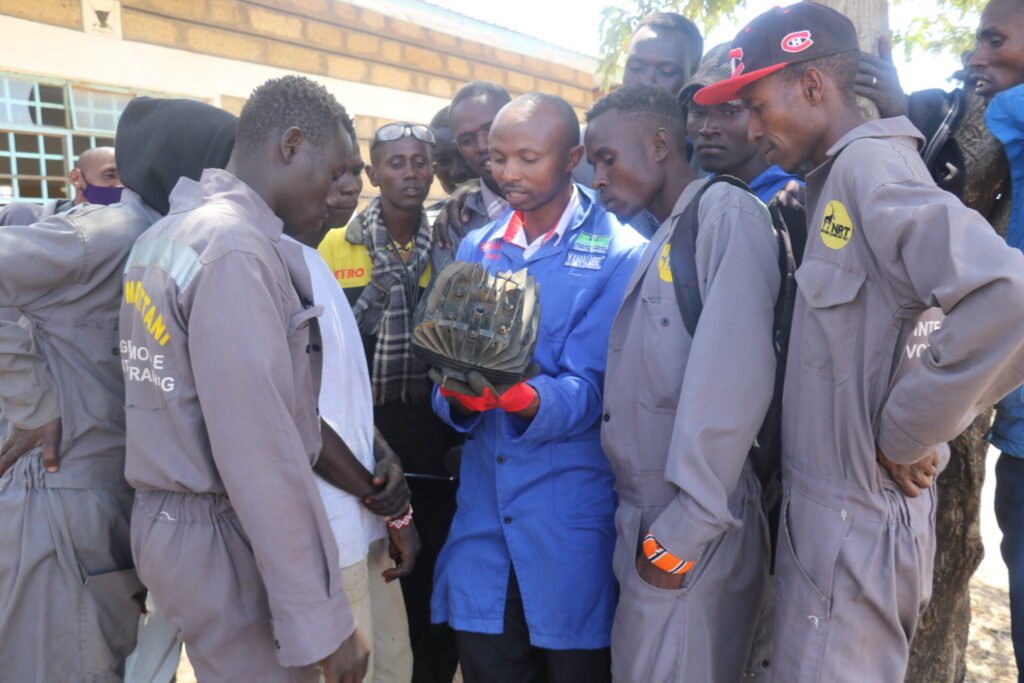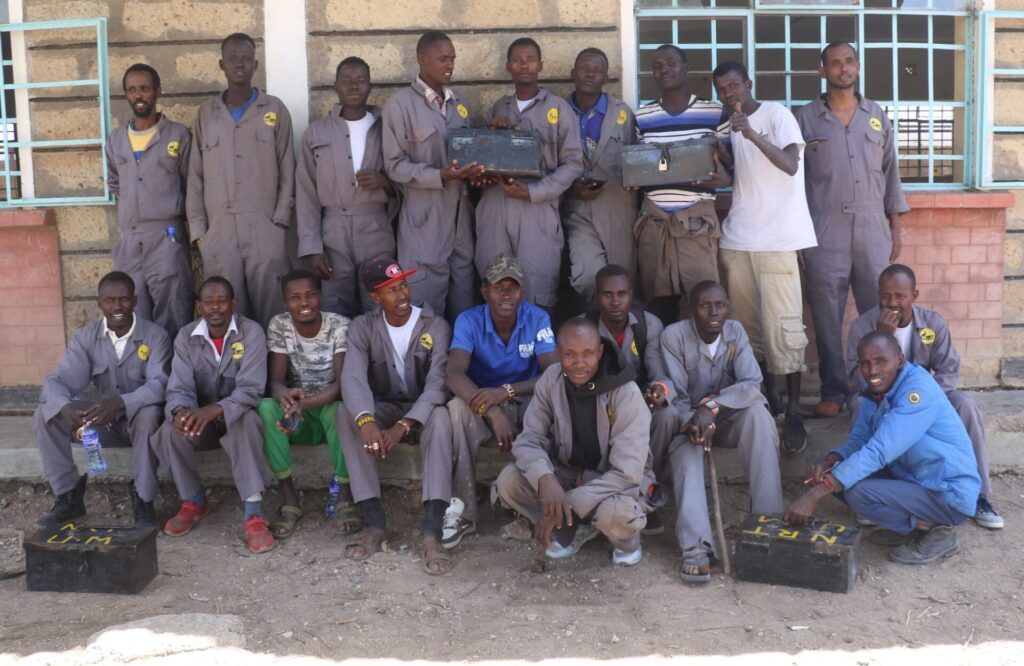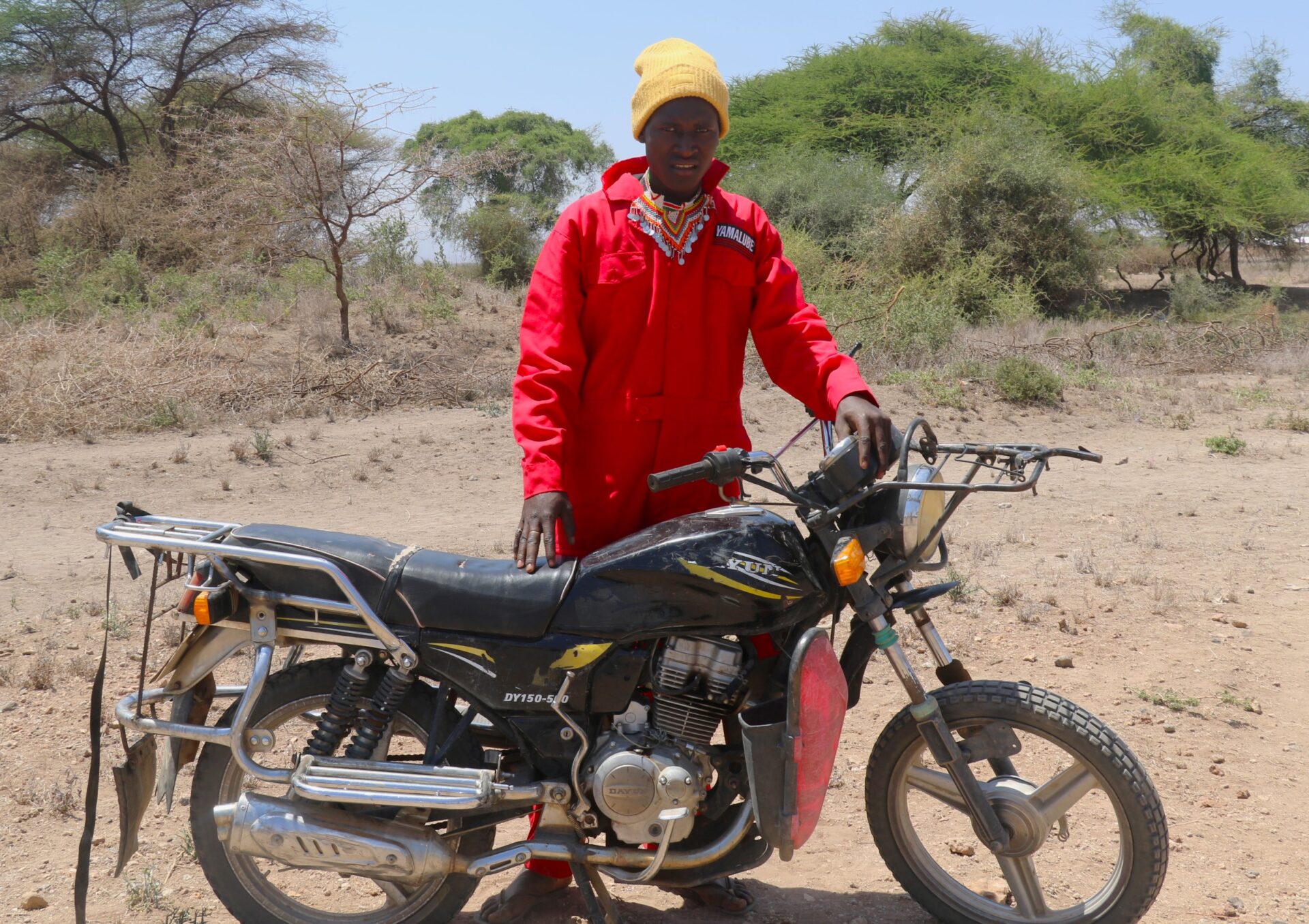A large, healthy livestock herd is a pastoralist’s pride and joy.
For indigenous pastoralist communities, it is the main currency, the only one that truly matters, culturally speaking. In the vast expanse of Nakuprat Gotu Conservancy, a young moran named Evans Echwa toiled in the fields, herding his family’s livestock for years. His journey, however, was far from the ordinary.
Echwa, a 26-year-old with a weathered spirit, dropped out of school at the tender age of class five, burdened by the responsibility of caring for his family’s cattle. Little did he know that his challenges would be as relentless as the scorching sun that beat down upon the arid land in northern Kenya.
Drought and banditry attacks became haunting shadows, casting uncertainty over his family’s livelihood. Preserving the cattle family’s only source of livelihood became critical. As pasture and water supplies dwindled, Echwa moved the herd further from home in search of grazing fields. Sometimes, he would cover distances of up to 100 kilometers to ensure the cattle were adequately fed and watered.

A life without the livestock was unimaginable!
As northern Kenya endured its fifth consecutive failed rainy season, Echwa’s greatest fear became a reality when the prolonged drought eventually wiped out his family’s entire herd. Left with no alternative source of income and being a lower primary school dropout, Echwa and his family faced a grim future.
Faced with shame and the weight of family blame, he embarked on a daring journey to recover what was lost. In a desperate bid for retribution, Echwa joined fellow morans and raided the neighboring community for livestock.
The fateful raid unfolded with a tragic climax -Echwa was shot alongside his fellow morans, and some of his comrades paid the ultimate price. The merciless bullets sprayed upon them did not spare his comrades’ lives.
His Turning Point!
Lucky to survive, Echwa nursed back to health in the sterile walls of a hospital, where he found himself at a crossroads. With the ghosts of the past crimes haunting him and the loss of his comrades weighing heavy on his conscience, he contemplated a new path for his life. One that diverged from the shadows of violence and into the realm of a better life.

Determined to rewrite his narrative, Echwa faced the uphill battle alone, without support for his newfound ambition. However, fate intervened during one of his idle days. In 2021, he discovered that NRT Trading Ujuzi Manyattani was organizing a sensitization meeting at Nakuprat Community Conservancy. The vocational programs offered by the organization offered a beacon of hope for people like him who were looking for an opportunity to better their lives through marketable skills.”
Undeterred by his lack of formal schooling, he applied, half-expecting rejection. To his surprise, the opportunity embraced him. “I applied for a course in motorcycle repair, and I was surprised to qualify even at my level,” recounts Echwa with a spark of gratitude in his eyes.
The next three months became a transformative journey as Evans immersed himself in the Ujuzi Manyattani vocational training program that places trainers in the villages. In April 2022, he emerged not just as a graduate but as a symbol of resilience, armed with startup tool kits and a newfound sense of purpose.

Echwa established his garage in the heart of Kiwanja village, located in Isiolo County, within Nakuprat Gotu Conservancy. He sees his enterprise as a business and a force for positive change. “Running my own garage has given me a lot of focus in life. I am no longer dependent on banditry crimes to survive. My mind is now focused on how to expand my business and be of more help to my community and family,” he says.
Evans Echwa, once a herder bound by the trials of the land into banditry, is among the 88% of Ujuzi Manyattani graduates who have embarked on self-employment through setting up their businesses, hence earning an income to secure their livelihoods.

